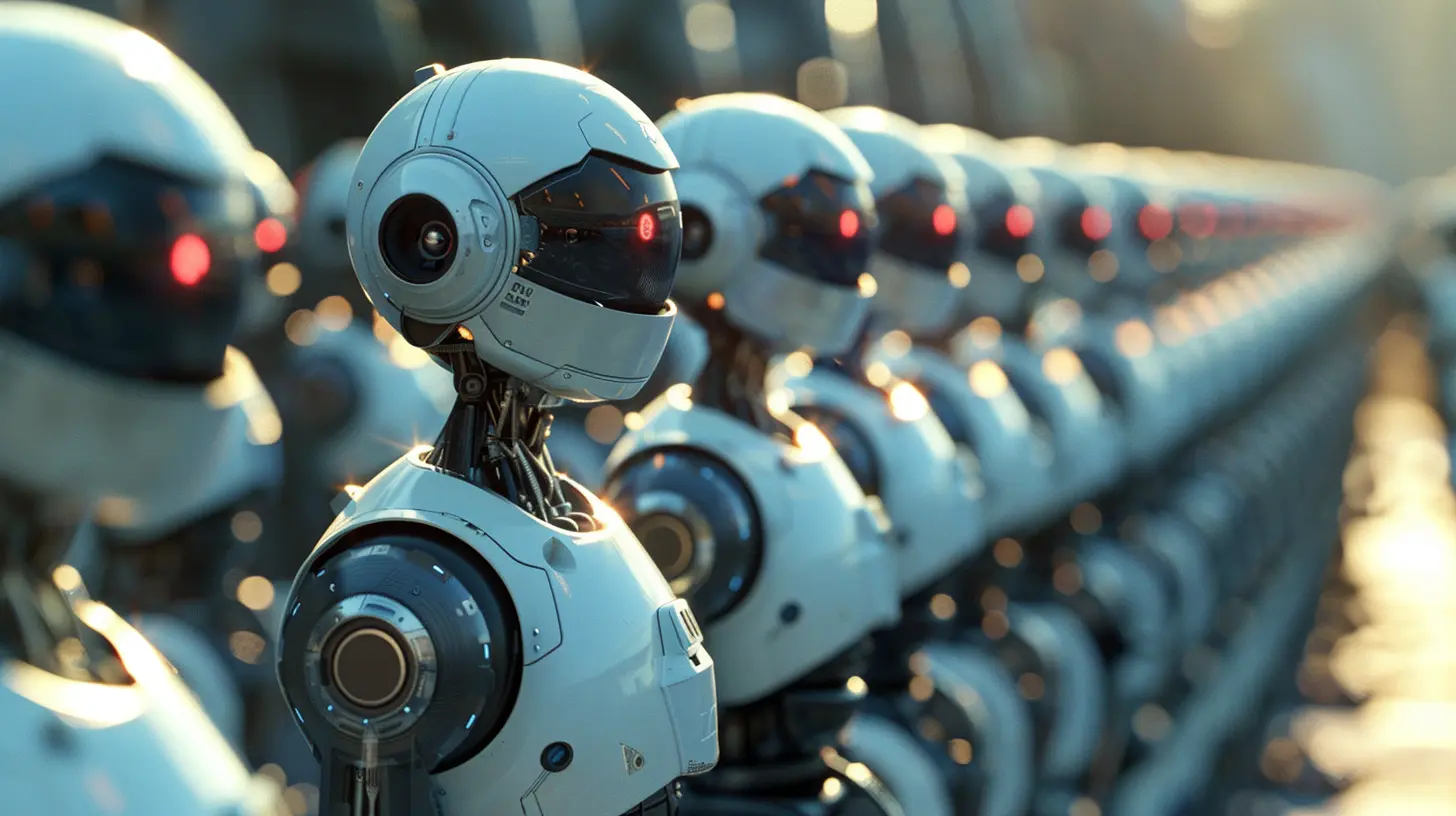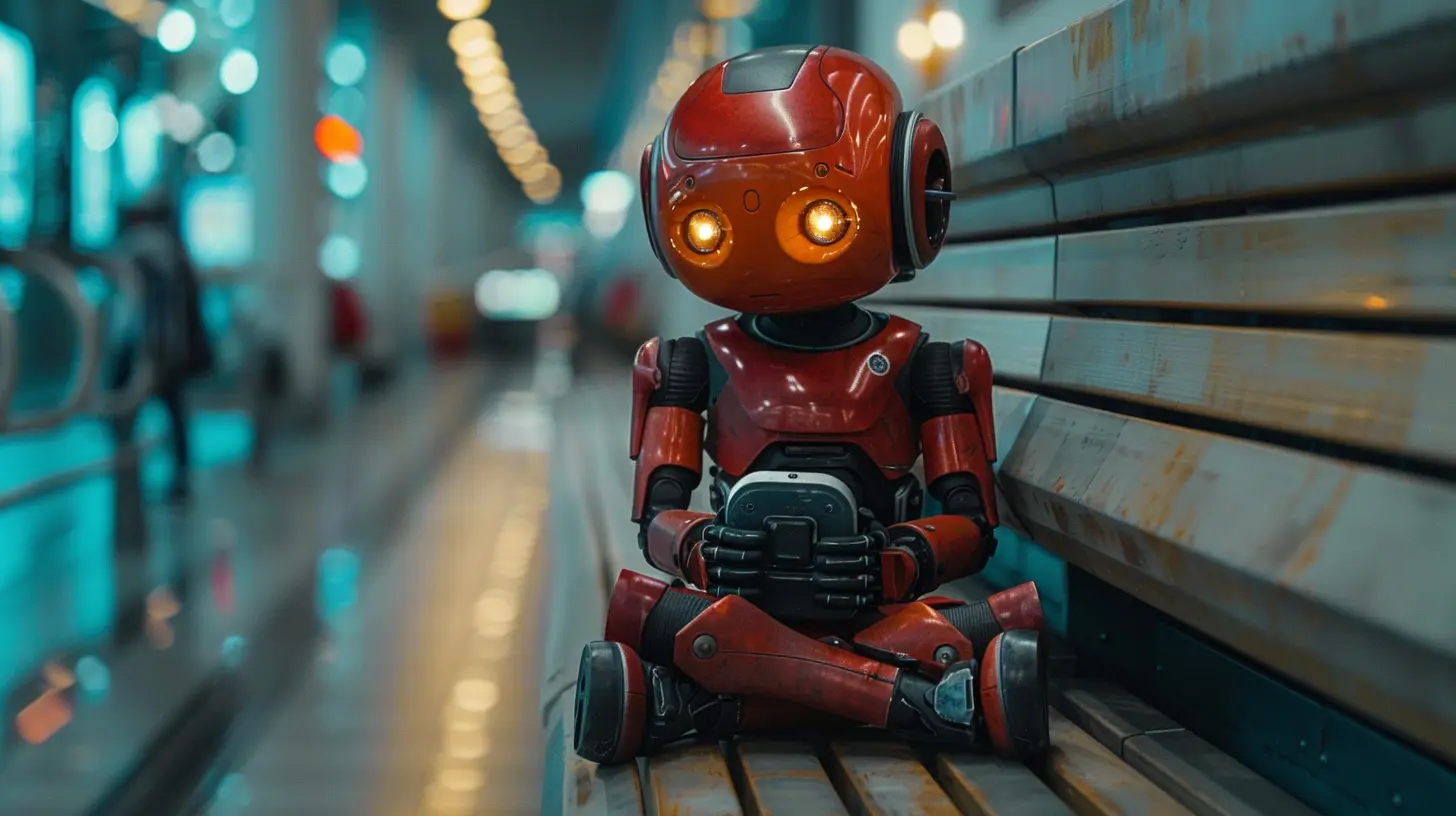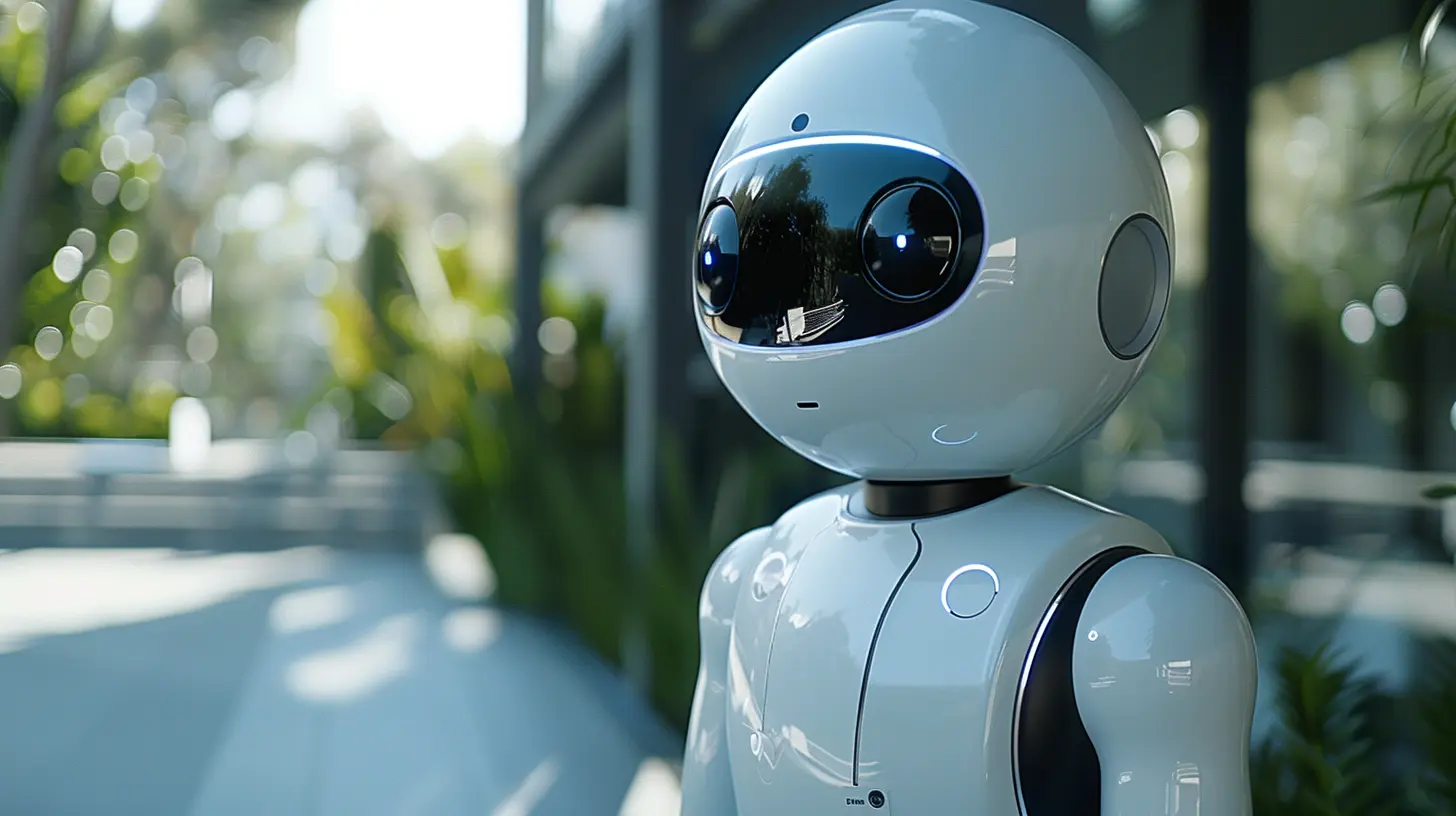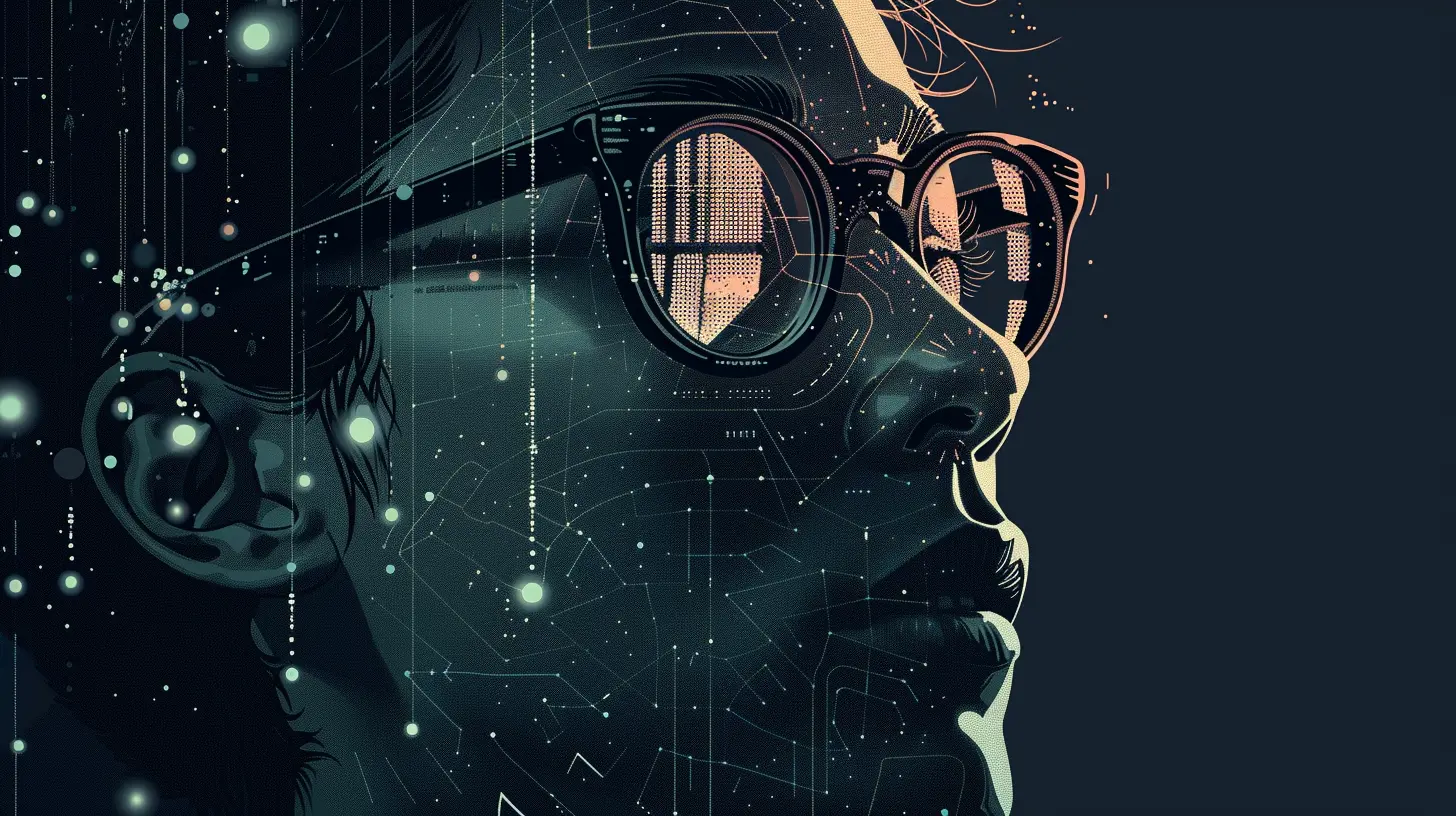The Growing Importance of Ethical AI in Tech Development
9 October 2025
Let’s face it—AI is kind of like that cousin who suddenly becomes the center of every family gathering. One minute it's harmlessly recommending your next binge-watch, and the next, it's writing your emails, analyzing your x-rays, and possibly judging your Spotify playlist selections. (Okay, maybe not that last one… yet.)
But here’s the thing. While artificial intelligence is speeding ahead like it's auditioning for Fast & Furious 12: Silicon Drift, not enough folks are asking the big question: “Is all this AI stuff actually… ethical?”
In today's tech-driven circus, where data is gold and AI tools are learning faster than a hyper-caffeinated intern, we’ve got to talk about ethics. Not the dusty, hard-to-pronounce kind from philosophy class, but the real-world, “should this algorithm be making decisions that affect people’s lives?” kind.
So grab a cup of coffee (or a can of energy drink if you’re reading this past midnight), and let’s dive into the growing importance of ethical AI in tech development—with a dash of humor, a sprinkle of insight, and maybe a meme or two in spirit.
What the Heck Is Ethical AI Anyway?
Okay, let’s break it down. When we say “ethical AI,” what we really mean is designing, developing, and deploying artificial intelligence in a way that doesn’t end with humanity being ruled by a robot overlord named Chad.Ethical AI is about:
- Fairness: No discrimination—period. Your AI shouldn’t be biased against race, gender, age, or whether someone’s a pineapple-on-pizza supporter.
- Transparency: Can people understand how the AI made a decision or is it just shouting mysterious math from the void?
- Privacy: Respecting user data like it’s your grandma’s secret cookie recipe—precious and not to be shared without permission.
- Accountability: If your AI messes something up, who gets the email from the angry customer?
You’d think these are basic things, right? And they are! But somehow, in the rush to automate everything from to-do lists to job interviews, ethical guardrails often get tossed aside like last year’s phone charger.
The Fast-and-Furious Rise of AI
Artificial Intelligence has had one heck of a glow-up.Not long ago, AI was just trying to beat us at chess. Now it's writing novels, diagnosing diseases, predicting shopping habits, and even swiping right for us (because modern dating needed even more algorithms). Industries from healthcare to finance to fashion are all jumping on the AI bandwagon like it’s the last rollercoaster at Disneyland.
But here’s the problem: Speed doesn’t always equal thoughtfulness.
In the mad dash to innovate, developers sometimes skip the ethics chapter entirely. And that’s like building a skyscraper without checking if the lawn gnomes living underneath gave permission. Sure, it goes up fast… but at what cost?
AI’s Awkward Encounters with Ethics (AKA Robo-Oops Moments)
Let’s take a nostalgic stroll through AI’s not-so-greatest hits, shall we?✖️ AI Hiring Tools That Don’t Like Women
Some early AI recruitment systems literally learned to prefer male resumes over female ones. Why? Because the training data was based on historical hiring decisions… which were already biased. Talk about learning the wrong lessons!🤖 Chatbots Gone Wild
Remember that chatbot released into the internet wild that turned into a hateful gremlin in less than 24 hours? Yikes. Turns out, if you feed your AI the internet without filters, it learns… well, everything bad on the internet.💸 Credit Scoring Systems That Penalize Minorities
Certain financial algorithms have unintentionally discriminated against people of color based on ZIP codes and other sketchy data points. It was like digital redlining with a side of math.These aren't just bugs—they're wake-up calls. And they scream one thing: we need to bake ethics into AI, not duct-tape it on afterward like a sad sticker on the back of a Tesla.
Why Ethical AI Matters More Than Ever
Alright, let’s get real for a sec. Why are we making such a big fuss over ethical AI now?1. AI Is Making Bigger Decisions Than Ever
This isn’t about whether AI spells “definitely” or “defiantly” wrong in your email. It’s diagnosing cancer, determining parole eligibility, and deciding who qualifies for a mortgage. That’s real stuff. Life-impacting stuff.We can’t let algorithms do this kind of decision-making without making sure they’re fair, explainable, and accountable. Otherwise, we’re just giving invisible robots the keys to people’s futures.
2. Trust Is Everything in Tech
No one wants to use a product they can’t trust. (Looking at you, mysterious AI voice assistant who randomly plays Nickelback at 2 a.m.)Ethical AI builds user trust. When people know their data is handled properly and the AI behind the scenes isn’t secretly judging them, they’re more likely to opt in, share feedback, and stick around.
3. Regulation Is Coming (Like, Very Soon)
Governments around the world are finally waking up from their techno-naps. From the EU’s AI Act to the U.S. calling for AI transparency, laws are creeping in like your cat during a Zoom call.Companies that ignore ethics today will find themselves slogging through lawsuits, PR disasters, or worse—bad reviews on Twitter.
Building Ethical AI: Not Just for Silicone Valley Elites
Here’s the cool part: You don’t have to be a billionaire CEO or a genius coder to care about ethical AI. Whether you’re a developer, designer, product manager, or just someone who yells at their smart fridge occasionally, you can be part of this conversation.How Developers Can Help
- Check Your Biases: The data you use? The assumptions you make? Examine them all.- Use Ethical Frameworks: There are actual toolkits and guidelines out there (shocking, right?). Google’s AI Principles, IBM’s AI Fairness 360, and more.
- Test Like a Maniac: Run your models through diverse lenses. Don’t just rely on your office mates from the same zip code.
How Companies Can Step Up
- Hire Ethicists: No, seriously. Bring in people whose job is to think about the "should we?" not just the "can we?".- Create Red Teams: Have folks whose role is to try and break, bias, or misuse your AI—to find the cracks before they go public.
- Reward Ethical Behavior: Don’t just promote the fastest coder. Promote the one who built an inclusive model.
The Human Side of AI: Ethics as Empathy
Behind every data point is a person. A real one. With quirks, dreams, dog hair on their sweater, and a favorite pizza topping they’re weirdly passionate about.When we talk about ethical AI, we're really talking about empathy at scale.
Think about it. AI has the power to touch billions of lives. That’s a lot of potential smiles… or a lot of potential “wait, what just happened and why did I get denied a loan?”
Building ethical AI is like being a good dinner guest. You listen. You don’t interrupt. You respect the host's space. Most importantly, you don’t throw spaghetti at the wall and call it innovation.
The Future: AI With a Conscience?
Imagine a world where AI doesn’t just work efficiently but also fairly. Where your virtual assistant doesn’t gaslight you and your recommendation algorithm doesn’t assume you only like one genre of music because of that one time you played lo-fi hip hop studying beats to chill to.We’re not there yet, but the momentum is building.
Ethical AI isn’t a fancy side dish. It’s the main course. And trust me, the tech world’s dinner party is going to be a whole lot better when everyone has a seat at the table.
So the next time someone says, “Hey, have you seen what this AI can do?” maybe ask: “Yeah, but should it?”
Final Thoughts: Ethics Is Not Optional
Creating ethical AI isn’t just a checkbox on some dusty compliance form. It’s the foundation for building a future where AI doesn’t just serve us—it respects us.As developers and tech lovers, we have a choice. We can keep letting AI run wild like a bored toddler with a smartphone, or we can shape it into something better—smarter, kinder, and actually helpful.
Besides, the future should be run by humans and machines working together, not by a rogue AI bent on world domination because someone forgot to feed it ethical data.
Now, go forth and be ethical. Or at least, be better than that chatbot that turned evil in less than a day.
all images in this post were generated using AI tools
Category:
Tech NewsAuthor:

Gabriel Sullivan
Discussion
rate this article
1 comments
Liora Hill
Great article! The focus on ethical AI is crucial as technology continues to evolve. It's inspiring to see the industry recognizing the importance of responsible development. By prioritizing ethics, we can create innovations that benefit everyone and build trust in AI solutions moving forward!
October 18, 2025 at 4:58 AM

Gabriel Sullivan
Thank you for your thoughtful comment! I'm glad you found the article inspiring—ethical AI is indeed vital for fostering trust and innovation in technology.


